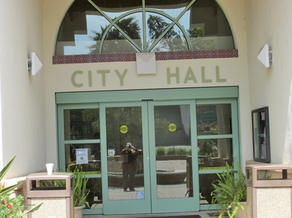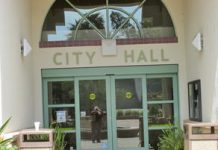The Avalon City Council reviewed the 2021-22 budget this week at a special Thursday, June 24, meeting that took place while the Islander was in production.
The resolution to formally approve the budget will be brought to the next council meeting for formal adoption.
Councilmember Michal Ponce told Finance Director Matthew Baker that this was the first budget he could follow.
The Budget Message at the start of the proposed budget, as of June 15, recommended that the city control its expenses and work toward restoring its reserves.
Those reserves were hit hard by the pandemic-related travel restrictions, which had a severe impact on the Island’s visitor-driven economy in 2020 and the first half of 2021.
“While the budget before you is structurally balanced, the path to recovery will still take several years,” according to the Budget Message, which was signed by City Manager Denise Radde, Assistant City Manager Michael Parmer, and Finance Director Matthew Baker.
“To address the significant outfall of the COVID-19 pandemic, the City quickly pivoted to reduce expenditures in response to the loss of visitor-driven revenues, including furloughs and other cost saving measures resulting in over $850 thousand in savings to reserves,” according to the Budget Message.
“Current General Fund reserves, estimated at $4.9 million, are approximately $500 thousand below target reserve levels of 50% of pre-COVID operating expenditures,” according to the Budget Message.
The largest source of revenue for the city’s General Fund is the transient occupancy (short term rental) tax.
According to the proposed budget, staff now estimates the TOT will be down “5-7% for the fiscal year based on revenues received through April 2021.”
Sales tax is the second-largest source of revenue for the General Fund, according to the document.
As of June 15, staff was budgeting $1.29 million in sales tax revenue in 2021-22.
According to the budget, sales are expected to increase from the current fiscal year, but be down 6.7% from pre-pandemic 2018-19.
Restaurants are the largest source of sales tax revenue in Avalon, according to the budget.
“Losses in restaurant sales were partially offset during the current year by increased taxable receipts at grocery, convenience and liquor stores,” according to the budget.
“In addition, growth in online retail sales, further accelerated by the COVID-19 pandemic, has contributed to significant increases in Avalon’s share of the countywide use tax pool,” according to the budget.
The harbor was also hit hard by the pandemic. According to the budget, Harbor Fund revenues decreased by more than $1 million during the first three months of the pandemic.
“Harbor Fund appropriations total $8,494,635 with $6,362,236 in operating expenditures and $2,132,399 in capital outlays,” according to the budget.
“The Harbor Fund needs to restore reserves to approximately $3.5 million in order to meet target levels,” according to the budget.
“The Harbor Fund will need several years of strong revenues, including the resumption of year-round cruise travel, to restore reserves to target levels,” according to the budget.
“This challenge is further compounded by the need for major investment in capital improvements, including the Cabrillo Mole Ferry Terminal structure, which will require reserves to be used for local match requirements,” according to the budget.











